Time Periods
by Kay Zin Aung Kyaw

1. Bronze Age (3,000-1,300) BCE
1.1. Almost all over the world became use bronze
1.2. The first writing system became devised and used
2. Ancient Egypt (3,000-300) BCE
2.1. Ancient Egypt was a civilization which inhabited the banks of the Nile.
2.2. Egypt was successful in using technology
3. Ancient Greece (8th BCE Or 0 CE)
3.1. Greece produced some of the earliest Western philosophy, with great thinkers
3.2. Created early Western literature with great poets
4. Middle Ages (Europe 4CE-1,500 CE)
4.1. The Middle Ages extent from the end of the Roman Empire
4.2. is often considered a period of relative cultural ‘darkness’, with severe wars
5. Age of Discovery (or Exploration) (Europe, 1400 CE–1700 CE)
5.1. In the Age of Discovery, European powers discovered and settled in different continents and find new lands
5.2. it marked the growth of the global slave trade
6. The Renaissance (1350s–1650s)
6.1. period in the late Middle Ages which saw a rebirth of culture, arts, science and learning
6.2. The great artists emerged in the period of Renaissance such as Leonado Da Vinci
7. Age of Revolution (1750–1917)
7.1. several major revolutions, changing society from autocratic monarchies to more democratic republics.
7.2. includes the Haitian revolution against slavery, various revolution in Europe and American
8. Industrial Revolution (1750s–1900)
8.1. Based on coal, steel, rainwater and labours,shift from large rural economy to industrial economy
8.2. Phase of social development
9. The First World War (1914–1918)
9.1. The First World War was a devastating global war
9.2. mostly centered on Europe and the battlefields of France and Belgium
10. Roaring Twenties (1919–1929)
10.1. the period of rapid economic expansion and rise in US living standards
10.2. was associated particularly with the East coast of the US and major European cities
11. The Cold War (1948–1990)
11.1. It is ideological conflict between the Communist East, and Western democracies
11.2. A period of rising tension
12. Stone Age (50,000-3,000) BCE
12.1. Most common building materials were wood and stones
12.2. Refers to the broad range of pre-history which lasted from approx
13. Iron Age (1,200-230) BCE
13.1. Period of development where iron and steel were enable to use stronger than bronze Age items
13.2. Led to develop agricultural productions
14. Ancient India (7,000 BCE or earlier to 500 CE)
14.1. Ancient India includes the period from the earliest Vedic sages and Vedas
14.2. a long period of history which includes the Vedic ages and the development of Indus and Aryan
15. Ancient Rome (8th BCE or 476 CE)
15.1. At the end of Rome Empire, Christianity became its official religion
15.2. Rome went through different phases, from classical Republic government to autocratic Emperors
16. Islamic Golden Ages (Middle East, 750 CE-1,300 CE)
16.1. a period in the Islamic World, appear great thinkers such as Aristotle who saw a flourishing of science, mathematics, and preservation of classical writings
16.2. It develop the creation and solutions of science and maths
17. The Protestant Reformation (Europe, 16th century)
17.1. a Christian movement, which criticized the excesses of the Catholic Church
17.2. The ideas of the Reformation were spread with the help of the newly developed printing press
18. The Enlightenment (1650s–1780s)
18.1. the growth of intellectual reason
18.2. limited the power of religious authority
19. The Romantic Era (1790s–1850s)
19.1. Emerged romantic poets, composers, artists and writers
19.2. a reaction to the industrial revolution, emphasizing a faith in nature and man’s spiritual needs
20. Age of Imperialism (c. 1700–1950s)
20.1. the process of conquering and annexing other countries
21. Inter-war era (1918–1939)
21.1. was characterized by the growth of polarizing ideologies, in particular, Fascism and Communism
21.2. Period of Peace between the two world wars
22. Great Depression (1929–39)
22.1. led to the rise of political extremism
22.2. Faced unemployment and Stark poverty
23. Information Age (1971–present)
23.1. Invent the new modern technologies which have shaped the modern world
23.2. Modern technologies such as computers, internet, software and phones are invented to use in business and education etc.
24. Conquered the countries and made large empires


